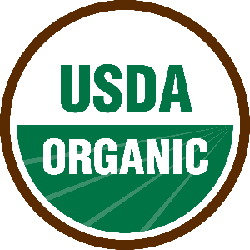The internet has been a buzz with talk of conspiracy, genetically-modified foods, contamination, restrictions on organic farming, and backyard gardens being banned. Recent recalls and contamination of peanut butter, pistachios, spinach, and tomatoes and concerns about outbreaks of bird flu and mad cow disease seem to be driving three pieces of legislation that have been proposed and referred to committees. It has been suggested that these contamination events were stunts to ease the way for these freedom-restricting bills. Others suggest that the terminology used for organic products and food labels do need some clarification. The fear and outcry seem to result from the vague and confusing nature of the legislation.
With names like the Tracing and Recalling Agricultural Contamination Everywhere Act, the Food and Drug Administration Globalization Act, the Food Safety and Tracking Improvement Act, and the Food Safety Modernization Act of 2026 it’s no wonder there is confusion about what is and is not being regulated, to what extent, and by who. After reading through HR 875, the proposed bill most likely to come to a vote, I can testify that there is not much more clarity to be found in the actual legislation than there is in all the alarmist blogs and email forwarding.
 I sought out the help of my cousin who is an Indiana local, organic farmer and reads a lot! He had a lot to teach me and I have a lot to learn. The bills do not specifically regulate or outlaw personal gardens, local farming, farmer’s markets, or CSAs; HR 875 seems to primarily address food products that cross state lines. The other major part of HR 875 is the creation of the Food Safety Agency in addition to the FDA. The FSA would have regulation jurisdiction over food production on farms, including written food-safety plans and increased inspections. HR 759 and HR 814 may be more troubling to the owners of small farms and businesses; however, the wording of the bills is so broad and vague that the room for interpretation is great. It is not surprising that there has been such a buzz of conspiracy.
I sought out the help of my cousin who is an Indiana local, organic farmer and reads a lot! He had a lot to teach me and I have a lot to learn. The bills do not specifically regulate or outlaw personal gardens, local farming, farmer’s markets, or CSAs; HR 875 seems to primarily address food products that cross state lines. The other major part of HR 875 is the creation of the Food Safety Agency in addition to the FDA. The FSA would have regulation jurisdiction over food production on farms, including written food-safety plans and increased inspections. HR 759 and HR 814 may be more troubling to the owners of small farms and businesses; however, the wording of the bills is so broad and vague that the room for interpretation is great. It is not surprising that there has been such a buzz of conspiracy.
Monsanto seed company has been accused of promoting these bills, causing much outrage. Although Monsanto is not specifically protected with this legislation, such vague laws have protected their interests in the past. Globally such laws have resulted in deep debt and even mass suicides of small farmers.
Increased regulations can mean an increase in safety; however, if not well considered it will also mean an increase in operation costs and increased time spent in activities not directly related to food production. Making businesses jump through certain hoops can make it impossible for small businesses to succeed. The danger is that only large farms will be self-sustaining. Let me clarify that I am not against safety or regulation. However, other industries have demonstrated that when regulations and methods of regulation are not clearly defined, it can become extremely limiting, especially for smaller businesses.
